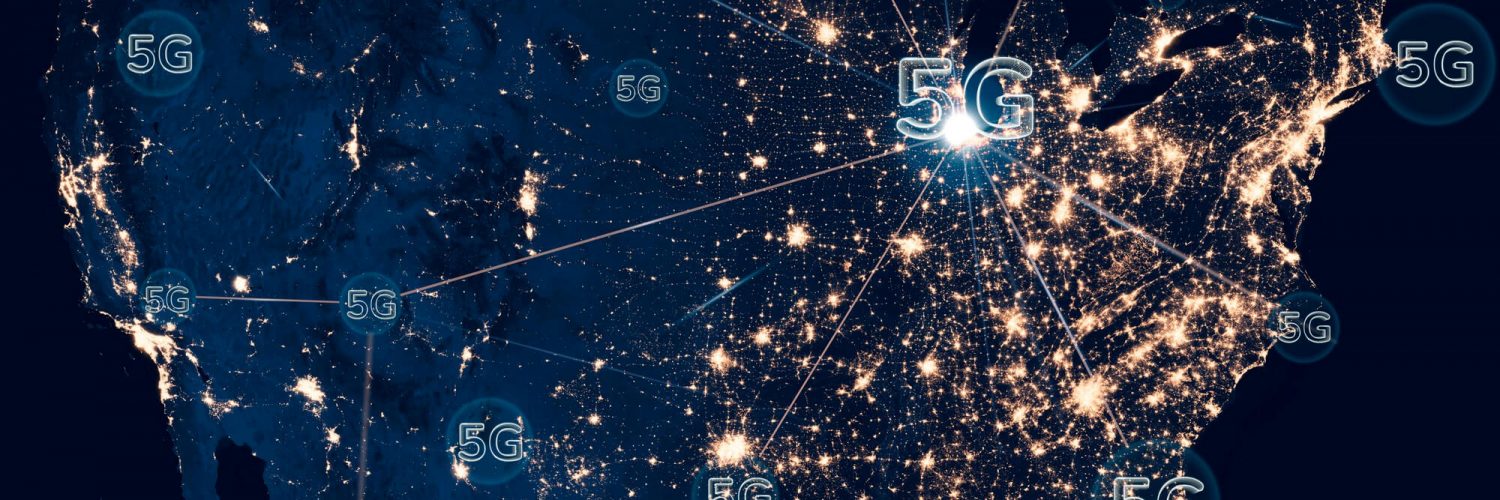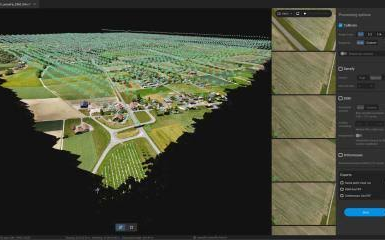5G refers to the fifth generation of cellular networks. With speeds up to a hundred times faster than 4G, the 5G network generates great new opportunities and possibilities for people and businesses.
Greater bandwidth, ultra-low latency, and faster connection speeds are transforming industries, developing societies, and tremendously improving the day-to-day experiences. We have witnessed the arrival of futuristic services such as e-health, traffic systems, connected vehicles, and advanced cloud gaming.
Through the 5G technology, it is possible to create a safer, smarter, and more sustainable future.
What Makes 5G Special?
The earlier generations of mobile networks are 1G, 2G, 3G, and 4G.
- 1G (first generation) offered the analog voice in the 1980s
- 2G (second generation) introduced digital voices such as Code Division Multiple Access (CDMA) in the early 1990s.
- 3G (third-generation) provided mobile data such as the CDMA2000 IN THE EARLY 2000s
- 4G LTE (fourth generation) saw the advent of mobile broadband
All the previous four generations resulted in the development of the 5G, which has been created to offer improved connectivity than ever before. 5G is a unified, highly effective air interface. It has been developed with an increased capacity that enables next-generation experiences by users, offers new services, and facilitates new deployment structures.
5G operates on similar radio frequencies, which are currently in use for smartphones, satellite communications, and Wi-Fi networks, but it allows the network to archive even more.
Besides the abilities download a full-length HD movie on your smartphone in just seconds (even when in a crowded stadium), skills future credit claim the technology also focuses on linking devices everywhere, reliably, absent any lags, to allow people to measure, understand, and manage things in real-time.
What are the Capabilities of the 5G Technology?
5G network not only significantly increases network connectivity but also offers new opportunities allowing us to afford transformative solutions that cut across society.
Picture billions of connected devices collecting and sharing information in real-time with the aim of reducing accidents or life-saving apps which can easily be implemented thanks to fast, lag-free, assured connections and predictive production lines which can prevent future interruptions even before they occur.
If 5G were to achieve its expected data speeds of up to 10 Gps, this would make it 100 times faster than the standard 4G. It will also be 30 times faster compared to the developed 4G standards like the LTE-A. Although even with minimum estimates, it will easily surpass both 3G and 4G.
With average download speeds of about384Kbps and a maximum speed of 8Mbps, for 3G, an average download speed of 32.5Mbps, and a ceiling of 100Mbps for 4g, they still cannot compare to 5G, whose average download speed is estimated at 130-240 Mbps with a hypothetical maximum 1-10Gbps.
This, therefore, means that It would take around 4 to 40 seconds to fully download an HD film through 5G compared to 7 minutes through the 4G network and over a day with 3G.
What Is The Connection Between 5G, Internet of Things (IoT), and Edge Computing?
With a huge capacity, low latency, and high speeds, 5G Ultra-Wideband, available in special areas, will ultimately enable more technology in history to connect to mobile networks, allowing the IoT on an incredibly large scale.
In 2021, the total number of connected IoT devices stood at 13.8 billion, and Verizon expects it to shoot to 30.9 billion by 20225. The 5G Ultra Wideband is aimed at assisting in fulfilling the high demands on network bandwidth. Companies such as Verizon have collaborated with Amazon Web Services (AWS), Google Cloud, and Microsoft, a partnership that combines 5G network expertise and industry-leading cloud services to enable enterprises and developers to create large-scale, latency-sensitive applications employing edge computing resources. This means that there will be improved cloud gaming, transformation in broadcast media, near real-time crowd analysis, and much more church near me.
How Do Businesses Use the 5G Network?
With high speeds and high reliability, 5G will significantly impact businesses. Businesses stand to benefit from 5G as it improves efficiency while providing users with a large pool of data.
Some businesses can experience the full perks that come with 5G capabilities, particularly those that require low latency, high speeds, and network capacities provided by the 5G technology. For instance, smart factories may use 5G in running industrial Ethernet, helping them increase operational precision and productivity.
Will You Need A New Phone To Use 5G?
You will need to get yourself a new smartphone that supports the 5G network. For instance, smartphones being run by the Snapdragon 5G Mobile Platforms are compatible with 5G.
Several new mobiles are being produced designed to support the 5G network, and various carriers worldwide support the 5G wireless network. As the 5G roll-out timeline continues, more smartphones and carrier subscriptions will be available to customers as the 5G technology, and a large number of users adopts its compatible devices.
What are the Implications of the5G Technology on the Global Economy?
5G technology is spearheading global economic expansion.
- It will account for $13.1 trillion of global economic production
- It will create 22.8 million new jobs
- Over the next 15 years, $265 billion will be invested into 5G CAPEX and research and development every year.
The 5G economic effect will be fully realized by 2035 supporting various industries and possibly facilitating the trade of goods and services worth $13.1 trillion. This impact is far greater compared to the previous generations of networks. The requirements of developing the TG technology are also widening beyond the classical mobile network players to sectors such as the self-driving vehicles industry.
The 5G value chain, including content creators, operators, OEMs, consumers, and app developers, could independently support about 22.8 million jobs. Moreover, there are still various emerging and new apps that may just become mainstream in the future. Only time can predict the full impact of the 5G effect on Cognitech Cloud Security software.






